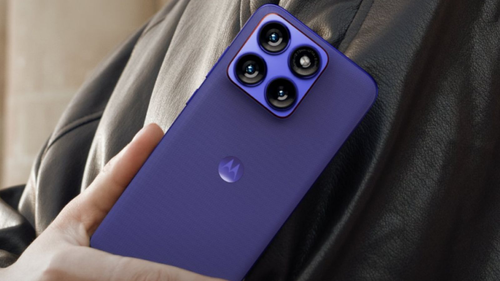Ad
Recent News
Mobile News
Other News

Nothing Phone (4a) Series Teased Ahead of March 5 Launch: Snapdragon 7s Gen 4
Nothing teases the Phone (4a) and Phone (4a) Pro ahead of their March 5, 2026 launch, featuring Snapdragon 7s Gen 4, upgraded displays, cameras, and refined Glyph lighting.
February 20, 2026

Motorola Edge 70 Fusion Leak Revealing: Snapdragon 7s Gen 4 & More
Motorola Edge 70 Fusion leaks reveal Snapdragon 7s Gen 4, a 7,000mAh battery with 68W charging, and a 144Hz 1.5K AMOLED display ahead of its expected launch.
February 20, 2026

First iPhone Air C1X Modem Failure Reported: Is Apple’s In-House 5G Chip at Risk?
A Reddit user reports the first hardware failure of Apple’s C1X 5G modem in the iPhone Air, causing complete signal loss. Is this an isolated case or a bigger concern?
February 20, 2026

Vivo V70 Series 5G Launching in India Today: Check Out All the Details Here
Vivo V70 Series 5G has launched in India featuring the Snapdragon 7 Gen 4 and Snapdragon 8s Gen 3 chipsets, a 6.59-inch 1.5K 120Hz display, Zeiss-backed 50MP cameras, and a 6,500mAh battery with 90W charging. Prices start at Rs 45,999.
February 19, 2026

Infinix Note Edge Arrives: Curved AMOLED, Big Battery at Rs 21,999
Infinix Note Edge has launched in India starting at Rs 21,999, featuring a 6.78-inch 1.5K 3D curved AMOLED display with 120Hz refresh rate, MediaTek Dimensity 7100 chipset, 6,500mAh battery with 45W charging, and Android 16-based XOS 16 with long-term software support.
February 18, 2026

Tecno Camon 50 Series Quietly Revealed Before MWC 2026: Check Out All Details Here
Tecno Camon 50 and Camon 50 Pro have been listed ahead of MWC 2026, revealing 144Hz 1.5K AMOLED displays, MediaTek Helio G200 Ultimate chipset, 6,150mAh battery with 45W charging, and a triple-camera setup with 3x telephoto on the Pro model. Global pricing and availability are expected after the Barcelona showcase.
February 18, 2026
Latest Reviews
View All

Vivo V70 Elite Review 2026: Price in India, Specs, Features

Asus Zenbook 14 UM3406G Review: All New Thin and Light Ai Laptop

Nothing Phone 3a Community Edition First Impressions: A Fresh Take on Budget Smartphones

Realme P4 Power 5G First Impressions: Massive Battery and Power

Brother MFC-J5855DW Printer Review 2026: Features, Specs, Performance

Haier H5E Series 4K Ultra HD Smart Google TV Review: Price and specification

Poco M8 5G Review

Redmi Note 15 5G Review
Ad
Stay Connected
Follow
Follow
Follow
Latest Mobiles In India
Ad
Ad





















